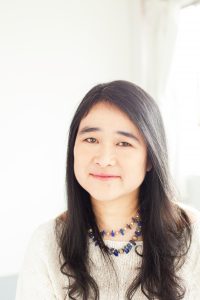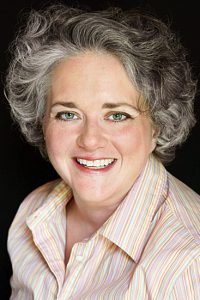Tananarive Due: Sense of Mission

Tananarive Priscilla Due was born January 5, 1966 in Tallahassee FL, daughter of civil rights lawyer John D. Due, Jr. and leading civil rights activist Patricia Stephens Due. She grew up in Miami, and attended Northwestern University’s Medill School of Journalism before getting her MA in English from Leeds University, where she studied Nigerian literature. She worked as a journalist for the Miami Herald after college, wrote full-time for 15 years, and has more recently turned to teaching. She taught an Afrofuturism class at UCLA for many years, and her new class on black horror, “The Sunken Place: Racism, Survival, and Black Horror Aesthetic”, has garnered a great deal of media attention. She has also taught at Antioch University, Spelman College, and the Clarion Workshop. She was inducted into the Medill School of Journalism’s Hall of Achievement in 2010.
Due met author Steven Barnes in 1997, and they were married in 1998. They have collaborated on novels and many screenplays, and together wrote and produced short zombie film Danger Word (2013).
Due’s debut novel was Stoker Award finalist The Between (1995), and other standalones include International Horror Guild Award finalist The Good House (2003) and Joplin’s Ghost (2005). The African Immortals series is Stoker Award finalist My Soul to Keep (1997), International Horror Guild Award nominee and American Book Award winner The Living Blood (2001), Blood Colony (2008), and My Soul to Take (2011).
With husband Steven Barnes she wrote the Zombie series: Devil’s Wake (2012) and Domino Falls (2013). She wrote historical novel The Black Rose (2000) and non-fiction Freedom in the Family (2003, with Patricia Stephens Due). With her husband and actor Blair Underwood she wrote four books in the Tennyson Hardwick series, beginning with Casanegra (2007); second volume In the Night of the Heat (2008) won an NAACP Image Award.
Her story “Ghost Summer” (2008) won a Kindred Award, and “Herd Immunity” (2014) was a finalist for the Theodore Sturgeon Memorial Award. Some of her short fiction was collected in Ghost Summer (2015), winner of the British Fantasy Award.
Due lives in Los Angeles with her husband and their son
Excerpts from the interview:
“When I started publishing, it was on the heels of Terry McMillan and the success of Waiting to Exhale. My entrée to publishing wasn’t so much through science fiction and fantasy as it was through this black books renaissance in the ’90s. There were a lot of contracts going out, and a lot of writers getting opportunities. We used to get a tour for the paperback and another tour for the hardcover in those days. My first experiences with readers were almost exclusively at black bookstores, where black booksellers would handsell my books. People weren’t accustomed to reading horror or science fiction by black writers, so they were a little resistant to reading my books, but the booksellers were really passionate, and I built my audience. By the time I attended my first Horror Writers Association event, that was the first time I had been at an event where it was primarily white genre readers. It was like going to a reunion of the other side of the family you hadn’t met yet. I had all these new cousins, and it was great. I met Harlan Ellison that year. It was two different worlds, really. That has also probably contributed to my not being as involved in the community, because for many years my publisher would tour me at black-themed events, and they didn’t know as much about the genre community. In 1997 at Clark Atlanta University I attended a conference called ‘The African-American Fantastic Imagination Explorations in Science Fiction, Fantasy, and Horror,’ where I met Octavia E. Butler, my now-husband Steven Barnes, and Jewelle Gomez. That was the first time those two worlds had crossed – people who love genre and people who are also black. It was a very eye-opening and jarring experience. I have come to discover over the years that genre readers come in all shapes and sizes and colors, and are distributed all over the world.
“At the beginning of my career I was frustrated by the way my appearances were limited to one audience. I didn’t understand why that was, and I asked about it. I came to learn that publishers could set me up for a signing at a Barnes & Noble, but that bookseller doesn’t know who I am, and they’re not going to hand sell and tell everybody they have to come, so I might not have anybody in the audience. Whereas if they send me to a black bookstore, even readers who don’t know anything about horror would come because I was a new exciting black writer, and that was just the way things were. I could wish that everybody knew my name, but the fact of the matter was that people did not know my name. Up until very recently a lot of genre readers still did not know my name. The turning point came when I had more short stories republished in magazines like Lightspeed and Nightmare. John Joseph Adams has made a huge difference in terms of people discovering my work. I learned very early that it was a waste of time to be frustrated by being labeled a black anything. I was lucky to be publishing as a black anything at that point. Someone like Octavia E. Butler, who won a MacArthur and has been so influential, at this point a lot of people refer to her as a science fiction writer and not a black science-fiction writer. It is what it is, and I have no objection to being labeled a black speculative fiction writer, because it’s true, not just in terms of my skin color but in terms of the work I write. I center black characters. I involve a lot of black history, or at least drop some black history in what I write. I’m a black speculative fiction writer and I’m also a speculative fiction writer, and I think those two things can coexist happily.
“I do enjoy the idea of being an inspiration. It’s always fun to encounter a new black reader who has never been interested in science fiction, because they didn’t see themselves reflected, or they thought they wouldn’t be reflected. People of color have been reflected in speculative fiction for some time now, but there’s still a perception that it’s not for them. Then they discover Butler, they discover me, they discover Nnedi Okorafor, they discover N.K. Jemisin, and their eyes light up. It’s like a whole new universe. If I had known about Butler’s work when I started finding my identity as a writer, I would have wasted a lot less time trying to write to fit a canon that was mostly white male writers. By the time I was in grad school, at the University of Leeds in England as a Rotary Foundation scholar, I was writing white male protagonists and epiphany stories without much plot or suspense, because that was what I’d been taught. If a Butler novel like Kindred had slipped in there, I would have said, ‘Wait a minute! I can write as a black woman.’ When I started my first novel The Between, it was an act of courage to write a black character. It was a male character, so I was still writing male, but at least I was moving closer to understanding that I had a story to tell, and that’s the important thing. When you don’t see yourself reflected, you know you have stories, but you don’t know who would be interested in those stories. Even in black literature, a lot of the most acclaimed writers, like Alice Walker and Toni Morrison, were writing about a rural Southern experience. I grew up in Miami, and it was suburban, not rural. I’d never read any black suburban fiction in my life. How would I know there was a market for black suburban fiction? So I wrote about a middle class family in a suburban neighborhood, living their middle-class lives, when a supernatural element creeps in, aggravated by a white supremacist. That was the plot of my first novel. Once I realized I could just do that, that I could draw from my family’s civil rights history, and that it was okay to write about the suburbs, that made a big difference.
“I grew up with a very close-knit family. I have two younger sisters. We’re each about two years apart. I’m the eldest. My father is a civil rights lawyer who worked in community relations in Miami. My late mother, Patricia Stephens Due, was a civil rights activist in her youth throughout the ’60s, and was arrested many times. She was tear-gassed, and wore dark glasses her entire adult life because she had sensitivity to light after a tear gassing. We were a family with a sense of mission. One of my earliest memories is my parents setting up a campaign headquarters in their house for McGovern, marching and protesting. There are pictures of my sister being pushed in a baby stroller by Ralph Abernathy, Dr. King’s right-hand man, during a protest in the early ’70s. My sisters and I are still best friends. The loss of my mother has been super hard on me. I got so much encouragement from her. That’s part of the reason family as a theme shows up in so much of my work – because they gave me so much. Every year for my birthday my mother had a big fat Writer’s Market hardcover book waiting for me – this was back before the internet, so the way you found a publisher was to flip through the book. She believed in my dream. If I wrote a short story she would Xerox it and distribute it at our church. In some ways, I would’ve had to try to fail. I was so set up for success, because they believed in me so strongly, and there was that sense of mission.
“I did have a period where I got lost in terms of mission. Who was I writing for, and what should I be writing about? That’s the flip side of coming from respected parents. In a college history course, I might have a book where I could flip to the index and find my mother’s name. I hesitated to write horror because I was aware of that legacy – even though my mother loved horror. That’s the ironic part. She’s the one who really sparked my interest in horror. From a young age, she had us watching these creature-feature movies, the Universal Wolfman, Dracula, all those classic movies I learned to love at a young age. She gave me my first Stephen King novel, The Shining, when I was 16.
“Once I read Stephen King, I was off to the races, but even so, I worried, at first unconsciously, but later it became conscious. In a creative writing workshop at Northwestern University, we were all going around talking about who our favorite writers were. I said Toni Morrison, who wrote Beloved, and Stephen King. When I said Stephen King’s name I saw my classmates stiffen with surprise that I would mention King in these Ivy halls. That’s how the subliminal messaging starts. Even now in creative writing programs students are subtly and not so subtly steered away from the genre. Between that and a white male canon, it’s no wonder I fumbled around trying to find my voice and trying to find my stories.
“Here was the turning point: I was a full-time reporter for the Miami Herald after college. My major was journalism because back then journalism was a solid career. (It’s funny to think about that now.) I was a journalist, and the whole time my plan was to liberate myself as a fiction writer. I was toiling away with these short stories, trying to figure out what I was writing about. I was assigned to interview Anne Rice on the telephone. I’d never read Anne Rice, but read the book to prepare for the interview, and also read some research about her and interviews as well. There was story that was basically excoriating her for ‘wasting her talents’ by writing about vampires when she could be writing works of literary merit. I brought that up because it spoke to me – that whole question of whether you can be respected and write genre was really needling at me. I never told her I was a writer. I just slipped it in with my questions, like they teach you in journalism 101. ‘How do you respond to criticism that you’re wasting your talents writing about vampires?’ I cringed and waited for her to answer. She just laughed. I think she literally laughed. She said, ‘That used to bother me. But my books are taught in colleges.’ She went on about how freeing it is to write genre, and the way that big themes can play out in genre in ways that are harder to get away with in contemporary realism and smaller stories. She lit a fire under me. Within nine months of that interview I had written my first novel. I also read Gloria Naylor’s Mama Day, so between the interview, which was literally a pep talk, even though Rice didn’t know it, and reading Gloria Naylor’s Mama Day, with a respected black writer writing about the metaphysical, I just let go of my fears, parachuted straight in, and never looked back.”
Interview design by Francesca Myman. Photo by Arley Sorg.
Read the full interview in the April 2018 issue of Locus.
 While you are here, please take a moment to support Locus with a one-time or recurring donation. We rely on reader donations to keep the magazine and site going, and would like to keep the site paywall free, but WE NEED YOUR FINANCIAL SUPPORT to continue quality coverage of the science fiction and fantasy field.
While you are here, please take a moment to support Locus with a one-time or recurring donation. We rely on reader donations to keep the magazine and site going, and would like to keep the site paywall free, but WE NEED YOUR FINANCIAL SUPPORT to continue quality coverage of the science fiction and fantasy field.







